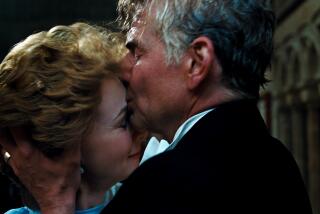Music Reviews : Currie Conducts Master Chorale in Bach Work
- Share via
Listening to the opening chorus of Bach’s “Passion According to St. John” Saturday evening at the Dorothy Chandler Pavilion, the listener foresaw a neat and tidy, but dynamically restrained and emotionally staid reading of the two-hour work.
It seemed that conductor John Currie wanted to downplay the tension generated by those trenchant dissonances that open the work and that adumbrate the painful drama that is to follow.
As it turned out, the Los Angeles Master Chorale’s account of the “Passion,” while in no way an extroverted one, exhibited a good deal of drama. Many of the choruses--particularly those depicting the cries of the angry mob, proved downright explosive. But it was during the 10 chorales that the Scottish conductor, by the judicious use of dynamic contrast, achieved the most telling emotional impact.
Tenor Paul Johnson brought to the role of Evangelist (and to the tenor arias) a fine sense of line and superior control. His sound, while remaining within a fairly narrow dynamic compass, remained pure and limpid in all registers.
Poetic phrasing and an angelic, pellucid tone made countertenor Brian Asawa’s singing especially attractive. Both he and Johnson displayed unusual effectiveness in conveying both the letter and the spirit of the text.
Bass William Fleck, who sang Christ’s words as well as the bass arias, produced a handsome sound in mid-range but proved disappointing in his high register, where both intonation and tone quality suffered. Moreover, it was often difficult to understand his words.
Soprano Cynthia Westphal Johnson’s tone resounded gloriously, but she was even harder to understand, and little logic seemed to govern her phrasing. Bass Edward Levy delivered the lines of Pilate with proper stentorian authority.
The 28 musicians of the Sinfonia Orchestra performed with stylish precision.
More to Read
The biggest entertainment stories
Get our big stories about Hollywood, film, television, music, arts, culture and more right in your inbox as soon as they publish.
You may occasionally receive promotional content from the Los Angeles Times.










